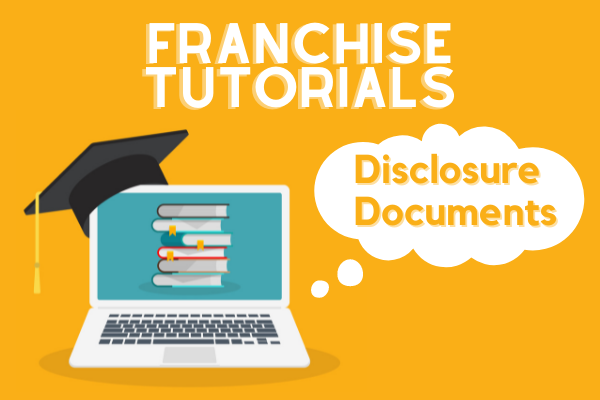As someone who is seriously considering investing in a franchise, you’ve probably completed your fair share of research. And if you’ve conducted all your due diligence, it’s inevitable that you came across something called a Disclosure Document.
Anyone ready to take the leap into business ownership should have a comprehensive understanding of what a Disclosure Document is. If you’re still a little confused about these documents, what’s included in them, and when they’re required…you’re not alone. Fortunately, we’ve compiled everything you need to know below!
What is a Disclosure Document?
A Disclosure Document is provided to prospective franchisees from a franchisor to help them better understand the franchise concept and make a fully informed business decision. These documents contain a factual summary of information on the franchisor, its executive team, and the franchise agreement, and will help you determine if you want to invest in the franchise.
However, not all prospective franchisees are given a Disclosure Document. Franchisors usually reserve them for qualified candidates who have shown a serious interest in their opportunity.
What’s included in a Disclosure Document?
Here’s what you can expect to find in a typical Disclosure Document:
- Corporate name of the franchisor
- Nature of the business
- Business experience of the directors and officers of the franchisor
- Previous convictions, civil actions, administrative proceedings, bankruptcies or liabilities of the franchisor, its directors, officers and associates
- Initial investment required
- Other fees payable under the franchise agreement
- Estimates on working capital and annual operating costs
- Projected earnings
- Training provided
- Financing arrangements
- Assistance provided by the franchisor
- Obligations of the franchisee
- Use of marketing fund
- Restrictions on what and to whom franchisees may sell
- Special licenses required
- Volume rebates and discount policies
- Obligations to participate in the actual operations of the franchised business
- Trademarks, patent and copyright information
- Available territories
- Term, renewal, termination and transfer of the franchise
- Policies regarding dispute resolution
Additional attachments will include:
- List of existing franchisees with contact information
- List of terminated, not renewed or cancelled franchisees with contact information
- Financial Statements of the franchisor
- Franchise Agreement
- Table of Contents of the Operations Manual
- Certificate of Franchisor signed by an officer of the company stating all material facts have been provided and all information is true
- Receipt to be signed and dated by the franchisee acknowledging receipt of the Disclosure Document
Are Disclosure Documents required by law?
In Canada, franchisors are required by law to supply Disclosure Documents only in provinces where franchise legislation is enacted. Currently, Alberta, British Columbia, Ontario, Manitoba, New Brunswick, and P.E.I. have franchise legislation in place.
However, you should prepare to receive a Disclosure Document even if you plan on opening a franchise outside of these provinces. Though it’s not required by law, many franchisors will provide these documents in good faith to help you learn more about the opportunity.
If a franchisor fails to provide you with proper disclosure when it is legally required you may have the ability to rescind the franchise agreement for up to two years from when the franchise was granted. If your agreement is rescinded, you may also be compensated for losses sustained in acquiring, setting up, and operating the franchise business.
Fun Fact: The Canadian Franchise Association (CFA) requires all its members to provide a Disclosure Document as part of the CFA Code of Ethics. You can learn more about the common elements of a franchise disclosure document with the CFA Disclosure Document Guide.
Who can access Disclosure Documents?
Disclosure Documents are not meant for the public and are for serious prospects only. Of course, that doesn’t mean you can’t ask for help when reviewing these documents. Legal and financial advisors, lawyers, and accountants should all be a part of your franchise support team and will help you ensure the documents meet all legal requirements.
So, when you receive a Disclosure Document make sure to review it carefully – it could be the deciding factor on whether or not you invest in a franchise.
——————————————————————————–
Disclaimer
The opinions or viewpoints expressed herein do not necessarily reflect those of the Canadian Franchise Association (CFA). Where materials and content were prepared by persons and/or entities other than the CFA, the said other persons and/or entities are solely responsible for their content. The information provided herein is intended only as general information that may or may not reflect the most current developments. The mention of particular companies or individuals does not represent an endorsement by the CFA. Information on legal matters should not be construed as legal advice. Although professionals may prepare these materials or be quoted in them, this information should not be used as a substitute for professional services. If legal or other professional advice is required, the services of a professional should be sought.

